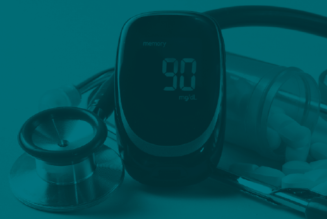
This article references disordered eating.
Did you hear about the vitamin gummies that can help you lose pounds of weight in days? It’s a miracle. What about castor oil? Apparently, it will improve your vision. Having problems sleeping? Oh, there’s a hack for that too – just drink some lettuce water before bed, and you’ll doze off in no time. Why? Because a bite-sized video says so. Welcome to your new TikTok healthcare plan.
Diet culture masquerading as health hacks is nothing new. While fad diets used to be disguised in the annals of lifestyle magazines, they’ve found a new lease of life on social media, particularly TikTok’s ‘For You’ page.
At the moment, the health trend making the rounds is the promise that apple cider vinegar gummies can help you to lose weight. The hashtags #applecidergummies and #applecidervinegargummies have a total of 81.3 million uses on TikTok, with many users touting various ‘health’ benefits, including weight loss.
We’re all guilty of getting sucked in by the latest trends, but when it comes to health and wellness, it’s problematic to follow the advice of short-form videos, which are often based on personal experiences, opinions, or even brand-affiliated content.
Health hacks themselves promise quick, easy, and often cheaper tips which are attractive to our busy lives, explains Dr. Becky Spelman, Psychologist and Founder at Private Therapy Clinic.
“Immediate gratification is appealing as it gives us a sense of accomplishment and acts as a motivation for us to continue on a healthier path,” she explains. “They offer actionable steps that we can implement ourselves, giving us a sense of agency over our wellbeing.”
When dealing with content related to our health, Hannah Belsham, health and nutrition coach at Innermost, points out that we should be considering whether they’re actually safe. For example, apple cider vinegar has been linked to various health benefits, but Belsham explains that there’s a distinct lack of studies on apple cider vinegar, with most being completed using the vinegar in its liquid form.
Not only do health hacks and magic weight loss gummies promote misleading and potentially dangerous information, but they can also encourage disordered eating patterns. Case in point: some lovers of the apple cider vinegar gummy trend have gone so far as to claim that a gummy is all you need to eat to last you until lunch.
What all of these trends have in common is that they claim to do something wonderful for your body, but, in reality, they’re just fuelling a toxic culture of supposed healthy living and miracle hacks, placing TikTok users at risk of developing disordered eating behaviours.
“People want things with fast results, and those that create content on this know that suggesting fast results by a hack will get the clicks and engagement,” says NHS doctor Dr Rumbi Mutenga.
“Those that are already prone to disordered eating may be more susceptible to these trends,” says Dr Mutenga. “Research has found links between social media use and eating concerns with an American study finding a strong and consistent association between social media use and eating concerns in a sample of young adults.”
Yet trying to sort fact from fiction and decipher what wellness trends are useful isn’t an easy feat. After all, some of these hacks won’t pose a health risk as such; they’re just disgusting and silly. ‘Healthy Coke’, we’re looking at you.
“Unfortunately, there is not one central location where information about health trends is held,” says Dr Mutenga. “People have to do their own due diligence using reputable sources, such as the NHS website, and considering if the hack is coming from a registered practitioner such as a dietician, nutritionist or doctor.”
While we might be able to keep our bodies safe from this kind of content by doing our own fact-checking, it’s not easy to stop yourself from falling victim to the toxic diet culture that it promotes. What TikTok users need to remember is that there is never a quick fix to leading a healthier lifestyle and that being healthy and being slim do not go hand-in-hand.
If you’re worried about your own or someone else’s health, you can contact Beat, the UK’s eating disorder charity, 365 days a year on 0808 801 0677 or beateatingdisorders.org.uk.









